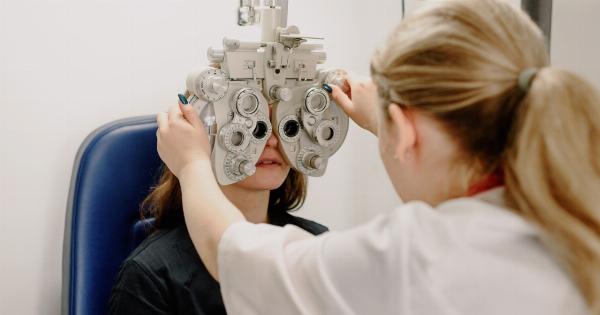Sunglasses are not only fashionable accessories, but they are also vital components in protecting your eyes from harmful ultra-violet (UV) radiation from the sun.
However, with a plethora of options to choose from, finding the perfect sunglasses can be a daunting task. Here are some expert tips on how to choose sunglasses that fit you well, suit your face shape and most importantly, protect your eyes.
1. Know your face shape
Before picking out sunglasses, it is essential to know your face shape. Sunglasses need to complement and flatter your face shape, so you need to choose wisely.
There are different face shapes ranging from round, oval, square, heart-shaped and diamond-shaped. Your face shape is determined by your jawline, cheekbones, and forehead, so it’s easy to figure out your face shape by examining these features.
Once you know your face shape, you can choose sunglasses that enhance your facial features and complement your style.
2. Look for proper UV protection
The importance of proper UV protection cannot be emphasized enough. The sun’s rays can be very harmful to the eyes, and prolonged exposure can lead to cataracts, macular degeneration, and other eye problems.
When choosing sunglasses, ensure they block out 99% of both UVA and UVB rays. Look for sunglasses that are labeled with either 100% UV protection or UV400.
3. Polarized lenses
Polarized lenses are great for reducing glare from the sun on reflective surfaces such as water, snow, and roads. They are particularly useful for activities such as driving, skiing, fishing, and other outdoor sports.
Polarized lenses work by blocking horizontally polarized light, which is the type of light that causes glare. With polarized lenses, colors look more vibrant, and your vision becomes clearer.
4. Lens color
The color of the lenses is another vital factor in choosing the perfect sunglasses. Different colored lenses have varying levels of protection and suit different activities.
Gray lenses are a good all-around color that reduces brightness without distorting colors. Brown lenses are excellent for enhancing contrast, making them ideal for activities such as golfing or driving. Yellow and Orange lenses have a high contrast, making them ideal for low light conditions and improve depth perception.
However, the lens color should not be confused with the level of UV protection.
5. Fit and comfort
When trying on sunglasses, ensure they feel comfortable on your face and sit well on your nose and ears. Remember, sunglasses that are too tight or too loose can cause discomfort and headaches.
Fortunately, most sunglasses come in varying sizes and shapes, so you should be able to find a pair that fits well. Also, check that the lenses are not too close to your eyes to prevent eyelashes from brushing against them, and they should rest on your cheeks without touching your eyelashes.
6. Consider the frame material
The frame material is another essential factor to consider when finding the perfect sunglasses. Frames can be made from various materials, including metal, plastic, or a combination of both.
Plastic frames are lightweight and durable, while metal frames are more durable and last longer. When choosing frames, consider the activity you will be doing while wearing the sunglasses, less durable frames may be ideal for casual wear, while more durable frames are suitable for outdoor activities.
7. Consider your lifestyle
Consider your lifestyle and the activities you engage in when finding the perfect sunglasses.
If you are an active person, consider wrap-around sunglasses that stay on your face, and are less likely to fall off during activities such as running and cycling. Additionally, if you spend a lot of time driving, consider polarized lenses to reduce glare from the road.
8. Brand and price
The brand and price of sunglasses are personal preferences. You may prefer designer brands that cost more or may opt for cheaper alternatives that serve the purpose.
However, it is essential to note that expensive does not always translate to high quality. Before purchasing sunglasses, focus on the lens quality, UV protection, and fit rather than the brand name or price tag.
9. Consider transitional lenses
Transitional lenses are a great option if you need prescription eyeglasses. These lenses darken when exposed to UV light, meaning that they essentially work as sunglasses when you are out in the sun.
Additionally, transitional lenses can save you the hassle of carrying glasses and sunglasses separately.
10. Prescription sunglasses
If you require prescription glasses, prescription sunglasses are another option. Prescription sunglasses allow you to choose the perfect pair of sunglasses while also correcting your vision.
You should consult with your optometrist for advice on the best type and style of prescription sunglasses for you.
Conclusion
Choosing the perfect sunglasses requires careful consideration of various factors, including UV protection, lens color, fit, and comfort.
Your lifestyle, face shape, and the activity you engage in are all important factors to consider when choosing the perfect sunglasses. With all this information, finding the perfect sunglasses should be less daunting and enjoyable.



























